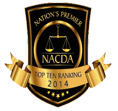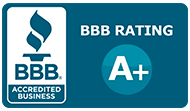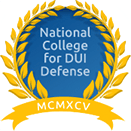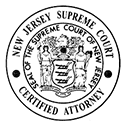Piscataway NJ DWI Lawyer
In New Jersey, when you operate a motor vehicle you essentially consent to the taking of your breath samples to determine your Blood Alcohol Content (BAC). However, these breath samples can only be taken if the police officer reasonable believes that you are driving under the influence. This reasonable basis is usually established by the police officer conducting field sobriety tests to determine intoxication. Our DUI attorneys are highly trained in drunk driving defense and also have significant experience handling these types of cases in Piscataway and other municipal courts in Middlesex County. A lawyer with the tools to escape a conviction for refusal, including one of our former DWI prosecutors, is available to speak to you 24/7 by calling our Piscataway Office at 732-392-7510.
Refusal Offense in New Jersey Under N.J.S.A. 39:4-50.2 & 39:4-50.4
The statute governing refusal to submit to a breath test in New Jersey is N.J.S.A. 39:4-50.2 (New Jersey Drunk Driving Statute) which reads in pertinent part:
§ 39:4-50.2. Consent to taking of samples of breath; record of test; independent test; prohibition of use of force; informing accused
(a) Any person who operates a motor vehicle on any public road, street or highway or quasi-public area in this State shall be deemed to have given his consent to the taking of samples of his breath for the purpose of making chemical tests to determine the content of alcohol in his blood; provided, however, that the taking of samples is made in accordance with the provisions of this act and at the request of a police officer who has reasonable grounds to believe that such person has been operating a motor vehicle in violation of the provisions of R.S. 39:4-50 or section 1 of P.L.1992, c.189.
(b) A record of the taking of any such sample, disclosing the date and time thereof, as well as the result of any chemical test, shall be made and a copy thereof, upon his request, shall be furnished or made available to the person so tested.
(c) In addition to the samples taken and tests made at the direction of a police officer hereunder, the person tested shall be permitted to have such samples taken and chemical tests of his breath, urine or blood made by a person or physician of his own selection.
(d) The police officer shall inform the person tested of his rights under subsections (b) and (c) of this section.
(e) No chemical test, as provided in this section, or specimen necessary thereto, may be made or taken forcibly and against physical resistance thereto by the defendant. The police officer shall, however, inform the person arrested of the consequences of refusing to submit to such test in accordance with section 2 of this amendatory and supplementary act. A standard statement, prepared by the chief administrator, shall be read by the police officer to the person under arrest.
What are the penalties for Refusal in New Jersey?
The penalties for Refusal in New Jersey are essentially the same as DWI. This means seven (7) months to one-year license suspension for first offense; two (2) years for second offense; ten (10) years for third offense. Penalties for refusal are enumerated in N.J.S.A. 39:4-50.4a which states:
§ 39:4-50.4a. Revocation for refusal to submit to breath test; penalties
a. Except as provided in subsection b. of this section, the municipal court shall revoke the right to operate a motor vehicle of any operator who, after being arrested for a violation of R.S. 39:4-50 or section 1 of P.L.1992, c.189, shall refuse to submit to a test provided for in section 2 of P.L.1966, c.142 when requested to do so, for not less than seven months or more than one year unless the refusal was in connection with a second offense under this section, in which case the revocation period shall be for two years or unless the refusal was in connection with a third or subsequent offense under this section in which case the revocation shall be for ten years. A conviction or administrative determination of a violation of a law of a substantially similar nature in another jurisdiction, regardless of whether that jurisdiction is a signatory to the Interstate Driver License Compact pursuant to P.L.1966, c.73, shall constitute a prior conviction under this section.
The municipal court shall determine by a preponderance of the evidence whether the arresting officer had probable cause to believe that the person had been driving or was in actual physical control of a motor vehicle on the public highways or quasi-public areas of this State while the person was under the influence of intoxicating liquor or a narcotic, hallucinogenic, or habit-producing drug or marijuana; whether the person was placed under arrest, if appropriate, and whether he refused to submit to the test upon request of the officer; and if these elements of the violation are not established, no conviction shall issue. In addition to any other requirements provided by law, a person whose operator’s license is revoked for refusing to submit to a test shall be referred to an Intoxicated Driver Resource Center established by subsection (f) of R.S. 39:4-50 and shall satisfy the same requirements of the center for refusal to submit to a test as provided for in section 2 of P.L.1966, c.142 in connection with a first, second, third or subsequent offense under this section that must be satisfied by a person convicted of a commensurate violation of this section, or be subject to the same penalties as such a person for failure to do so. For a first offense, the revocation may be concurrent with or consecutive to any revocation imposed for a conviction under the provisions of R.S. 39:4-50 arising out of the same incident. For a second or subsequent offense, the revocation shall be consecutive to any revocation imposed for a conviction under the provisions of R.S. 39:4-50. In addition to issuing a revocation, except as provided in subsection b. of this section, the municipal court shall fine a person convicted under this section, a fine of not less than $ 300 or more than $ 500 for a first offense; a fine of not less than $ 500 or more than $ 1,000 for a second offense; and a fine of $ 1,000 for a third or subsequent offense.
b. For a first offense, the fine imposed upon the convicted person shall be not less than $ 600 or more than $ 1,000 and the period of license suspension shall be not less than one year or more than two years; for a second offense, a fine of not less than $ 1,000 or more than $ 2,000 and a license suspension for a period of four years; and for a third or subsequent offense, a fine of $ 2,000 and a license suspension for a period of 20 years when a violation of this section occurs while:
(1) on any school property used for school purposes which is owned by or leased to any elementary or secondary school or school board, or within 1,000 feet of such school property;
(2) driving through a school crossing as defined in R.S. 39:1-1 if the municipality, by ordinance or resolution, has designated the school crossing as such; or
(3) driving through a school crossing as defined in R.S. 39:1-1 knowing that juveniles are present if the municipality has not designated the school crossing as such by ordinance or resolution.
A map or true copy of a map depicting the location and boundaries of the area on or within 1,000 feet of any property used for school purposes which is owned by or leased to any elementary or secondary school or school board produced pursuant to section 1 of P.L.1987, c.101 may be used in a prosecution under paragraph (1) of this subsection.
It shall not be relevant to the imposition of sentence pursuant to paragraph (1) or (2) of this subsection that the defendant was unaware that the prohibited conduct took place while on or within 1,000 feet of any school property or while driving through a school crossing. Nor shall it be relevant to the imposition of sentence that no juveniles were present on the school property or crossing zone at the time of the offense or that the school was not in session.
Sayreville New Jersey Refusal Charges Lawyer
If you have been charged with refusal in Middlesex County, including in Woodbridge, Perth Amboy, Sayreville, Edison, or East Brunswick, The Law Offices of Jonathan F. Marshall can help you. Our experienced and knowledgeable team of DWI defense attorneys is certified in field sobriety testing. We can identify issues in your case and will work to find the best possible outcome for your refusal charge. Call our New Brunswick office at 732-246-7126 for a free initial consultation. We are here to help you.













